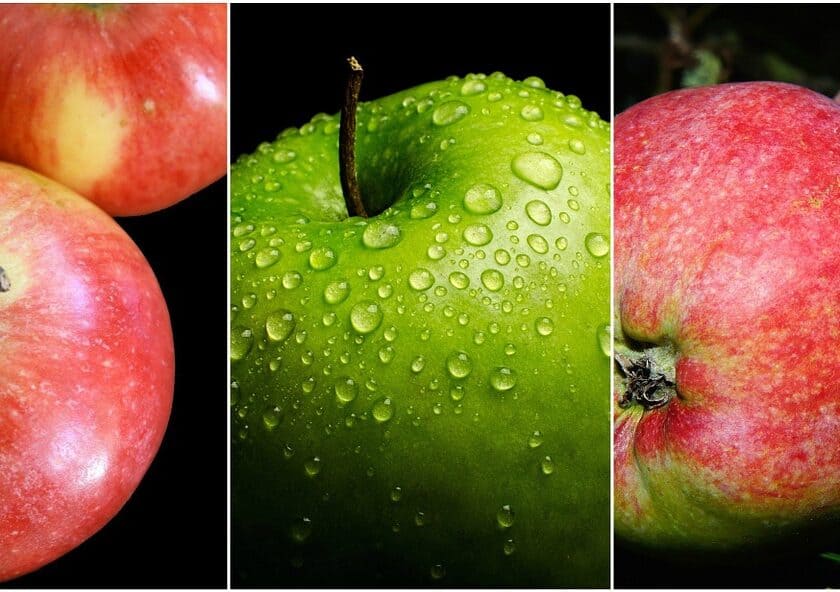-By: Bhavisha Changrani
As the first generation to grow up in a world of digital technology and social media, Gen Z (those born roughly between 1997 and 2012) is redefining almost every aspect of modern culture, including the way we approach food. This generation’s eating habits are shaped by a unique combination of environmental concerns, health awareness, technological influence, and social consciousness. Let’s explore how Gen Z is influencing the future of food and nutrition through their preferences for plant-based diets, ethical sourcing, and digital food tracking.

The Rise of Plant-Based Eating
One of the most prominent nutritional trends among Gen Z is their strong preference for plant-based diets. While plant-based eating has been on the rise for years, Gen Z has truly embraced it, not just as a diet choice, but as a lifestyle. According to recent surveys, Gen Z is more likely than older generations to identify as vegan, vegetarian, or flexitarian (someone who mostly follows a plant-based diet but occasionally eats animal products).
The reasons behind this shift are multifaceted. Environmental sustainability is a key motivator, with Gen Z showing deep concern over the impact of animal agriculture on climate change, deforestation, and water usage. The ethical treatment of animals is another driving factor, with many Gen Zers seeking alternatives that align with their values. In fact, plant-based alternatives to meat, such as Beyond Meat and Impossible Foods, have gained significant popularity due to their accessibility and resemblance to traditional animal products.
Health considerations also play a critical role in the plant-based trend. Gen Z is increasingly aware of the health risks associated with diets high in processed meats and animal fats, and they are turning to plant-based foods for their lower cholesterol levels, higher fiber content, and association with reduced risks of chronic diseases.

Ethical Sourcing and Transparency
Gen Z’s relationship with food goes beyond just what they eat – it extends to where their food comes from and how it’s produced. This generation is passionate about ethical sourcing and seeks transparency in the food supply chain. From fair-trade coffee to locally grown produce, Gen Z consumers want to know that their food is sourced responsibly, ethically, and sustainably.
This interest in ethical sourcing is particularly evident in the demand for plant-based and cruelty-free products. Gen Z is keen on supporting brands that promote sustainability, environmental consciousness, and animal welfare. Companies that prioritize transparent labeling, fair wages for workers, and eco-friendly packaging are particularly attractive to this generation, which values authenticity and accountability.
The growth of “conscious consumerism” has also led to a rise in food brands that focus on ethical and sustainable practices. Gen Z’s willingness to pay a premium for products that align with their values is reshaping the food industry, pushing brands to adopt more sustainable practices.
Digital Food Tracking and Health Monitoring
In a world where technology permeates every aspect of daily life, it’s no surprise that Gen Z is using digital tools to track their food, health, and fitness. From fitness apps like MyFitnessPal to more specialized food-tracking platforms like Yuka or Cronometer, digital health tracking has become an integral part of the Gen Z lifestyle.
These tools allow users to log their meals, analyze nutritional content, and track progress toward health goals such as weight loss, muscle gain, or improved energy levels. Additionally, many apps offer insights into how specific foods affect individual health markers, such as blood sugar levels or digestive health, leading to more personalized nutrition approaches.
Social media also plays a big role in shaping food trends among Gen Z. Platforms like Instagram, TikTok, and YouTube are filled with food influencers who share recipes, meal ideas, and nutritional advice, making it easier for Gen Z to find inspiration for their plant-based meals or experiment with new diets. Influencers are also driving the popularity of “food hacks” and quick, nutritious meal prep ideas, further encouraging digital engagement with food and nutrition.

Convenience and Innovation in Food Products
While Gen Z values health and ethical sourcing, they also place high importance on convenience. This generation has grown up with on-demand delivery services and instant access to information, so it’s no surprise that they expect their food to be quick and easy to prepare. In response, the food industry has adapted by offering more ready-to-eat, healthy meal options and snack alternatives.
Innovations like plant-based ready meals, protein-packed snacks, and functional beverages (think kombucha, energy drinks with adaptogens, and protein shakes) are seeing increasing demand from Gen Z. These products cater to their fast-paced lifestyles while still aligning with their health-conscious and environmentally aware values.
The Influence of Social Media and Food Trends
Social media has an undeniable impact on food trends, and Gen Z is at the forefront of this revolution. TikTok, Instagram, and YouTube are home to viral food challenges, recipe trends, and innovative eating habits. Whether it’s whipped coffee, banana bread, or the latest “TikTok-approved” smoothie bowls, Gen Z is shaping the way we discover and enjoy new foods.
These platforms also facilitate the rapid spread of health and wellness trends, from intermittent fasting and detox diets to “clean” eating and gut health practices. Food is not just something Gen Z consumes – it’s a form of expression and a way to connect with others who share similar interests.

Conclusion: The Future of Food is in Gen Z’s Hands
The food and nutrition landscape is undergoing a dramatic transformation, and much of this change can be attributed to Gen Z. Their preference for plant-based diets, demand for ethical sourcing, embrace of digital tools for health tracking, and influence of social media are reshaping the food industry in profound ways. As this generation continues to mature and assert its purchasing power, the food sector will need to adapt, creating products that cater to Gen Z’s values of sustainability, transparency, and convenience.
In the years to come, it’s likely that Gen Z’s nutritional trends will continue to influence not just what we eat, but how we eat – and why we eat it. For businesses, innovators, and health professionals, understanding these shifts will be key to staying relevant in an increasingly health-conscious and socially responsible world.













